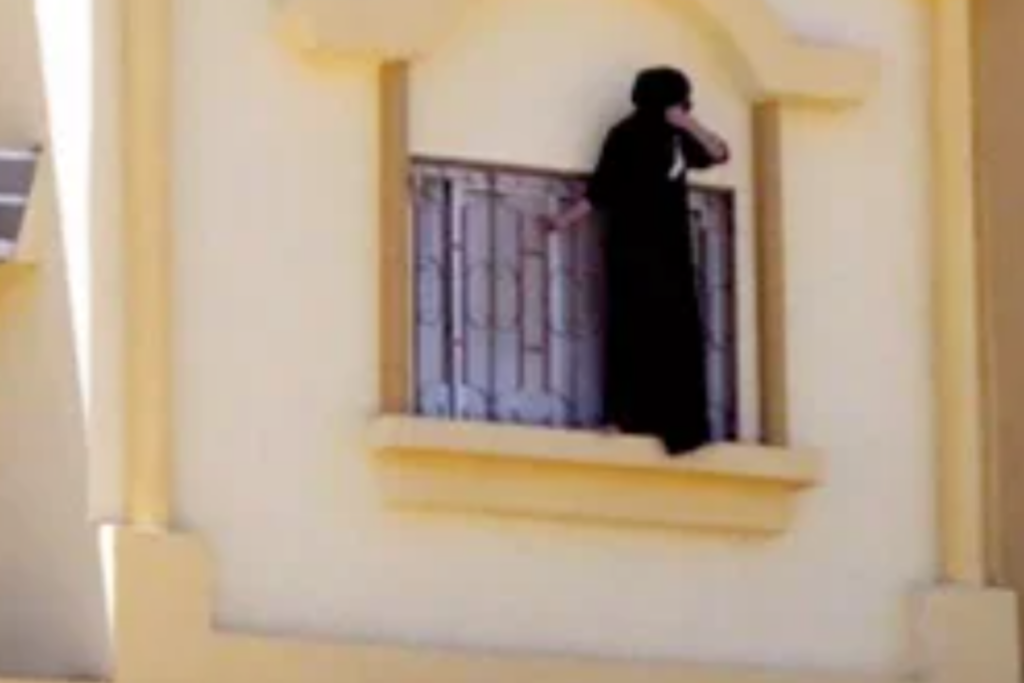The Saudi Arabian government has painted itself as an increasingly “progressive” country over the years, but its continued failure to protect women and girls from gender-based violence has been exposed through various reports.
Most recently, The Guardian has gathered harrowing testimony from women allegedly held in Saudi Arabia’s notoriously secretive “jails”, or “care homes” as the country’s government calls them. It’s been said the women get sent to these institutions by their families or husbands for disobedience, extramarital sexual relations or being absent from home.
“Hellish” is how one woman described it to the news publication, with allegations that the women are subject to weekly floggings, forced religious teachings and no visits or contact with the outside world.
Called Dar al-Reaya, the institutional conditions are reported to be so bad that there have been several cases of suicide or attempted suicide.
An infamous photograph captured back in 2013 shows an unknown young woman wearing a black abaya, standing atop a second floor window ledge, allegedly at one of the Dar al-Reayas. In a second image, a group of young men can be seen escorting her down with the help of a crane.
It was a rare image of where hundreds of women and girls are believed to be sent to be “rehabilitated” in order to return to their families more obedient.
Human rights movement Amnesty International has repeatedly highlighted the failures of Saudi Arabia to live up to the image of progress and reform it attempts to portray to the rest of the world.
In March of last year, the organisation condemned a leaked draft of Saudi Arabia’s first written penal code as falling “woefully short of universal human rights standards” and for exposing “the hypocrisy behind Crown Prince Mohammad bin Salman’s promises to position his government as progressive and inclusive”.
Amnesty International said Saudi Arabia’s “manifesto for repression” essentially criminalised the right to freedom of expression, thought and religion and failed to protect the right to freedom of peaceful assembly”.
“It criminalises ‘illegitimate’ consensual sexual relations, homosexuality and abortion and fails to protect women and girls from gender-based violence.”
Despite these human rights concerns, Saudi Arabia has been confirmed as the 2034 Fifa World Cup host, in a decision that Amnesty International has said “will put many lives at risk”.
The news from Fifa has drawn criticism from NGOs, trade unions and legal and governance experts, as well as football supporters.
This year, in March, Saudi Arabia was at the centre of another controversial appointment, as the country was chosen to chair the UN Commission on the Status of Women, one of the most important annual global forums working to advance gender equality and women’s rights.
Hillel Neuer, executive director of UN Watch, a non-profit dedicated to holding the UN accountable to its founding principles, described the country’s role as chair of the commission as “surreal” and likened the decision to “putting Dracula in charge of the blood bank.”



